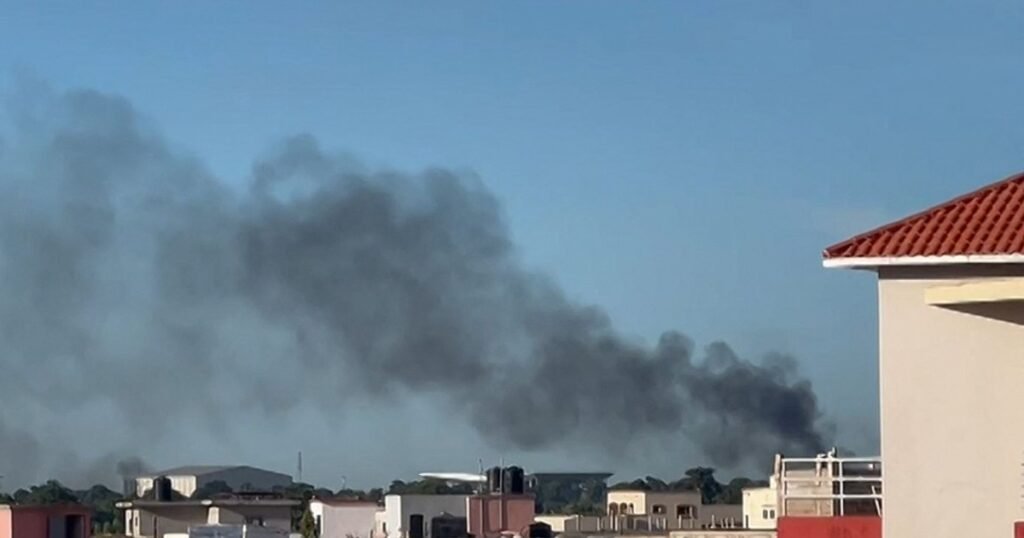An estimated 77 people were killed and 200 others were injured in an attack on Mali’s capital, Bamako. The attack took place on Tuesday and caused hospitals to be overwhelmed with wounded patients. Malian authorities closed Modibo Keita International Airport after the incident, which was claimed by the al-Qaeda-linked Jama’at Nusrat al-Islam wal-Muslimin (JNIM). The group attacked an elite military police training school and a military base near the airport, resulting in gunshots, explosions, and fires in buildings. The military government initially downplayed the incident but later admitted to suffering casualties. State TV showed images of captured suspects believed to be involved in the attack.
JNIM members reportedly killed scores of Malian soldiers and Russian fighters from the Wagner mercenary group during the nine-hour attack. The group claimed to have taken control of the airport and surrounding areas, although Malian authorities stated that the attack had been repelled. UN Secretary-General Antonio Guterres condemned the attack, and several countries, including the African Union, Senegal, France, and the United Kingdom, denounced the violence. The World Food Programme (WFP) also confirmed damage to an aircraft used for humanitarian aid, reducing their capacity to respond to emergencies.
The attack in Bamako is significant as it targeted military bases in the capital, a rare occurrence in recent years. While Mali has faced violence from armed groups since 2012, attacks have been concentrated in northern and central regions of the country. The last high-profile attacks in Bamako occurred in 2015, carried out by the al-Mourabitoun group, which has since merged with other groups to form JNIM. The armed groups control large areas in Mali and neighboring countries and have launched attacks in Burkina Faso and Niger.
Violence by armed groups in Mali has been countered in the past by French forces and the UN peacekeeping mission. However, dissatisfaction with the response to insecurity led to a military coup in 2020, resulting in the Russian Wagner forces replacing French troops. While this collaboration has helped Mali regain some territory from armed groups, it has also been associated with human rights violations. The Tuareg rebels launched a significant attack on Russian forces in August, resulting in significant losses for the Malian army and Russian mercenaries.
Mali, Niger, and Burkina Faso are facing increasing levels of violence despite turning to Russian forces for support and cutting ties with France. The formation of the Alliance of Sahel States aims to jointly fight armed groups with the assistance of Wagner fighters. The region has seen a rise in attacks involving armed groups, leading to thousands of civilian casualties. Burkina Faso has been particularly affected, with two-thirds of its territory under control of JNIM and other armed groups. Niger is also experiencing deadly attacks from the ISIL affiliate in the Sahel following a military coup in July 2023.

